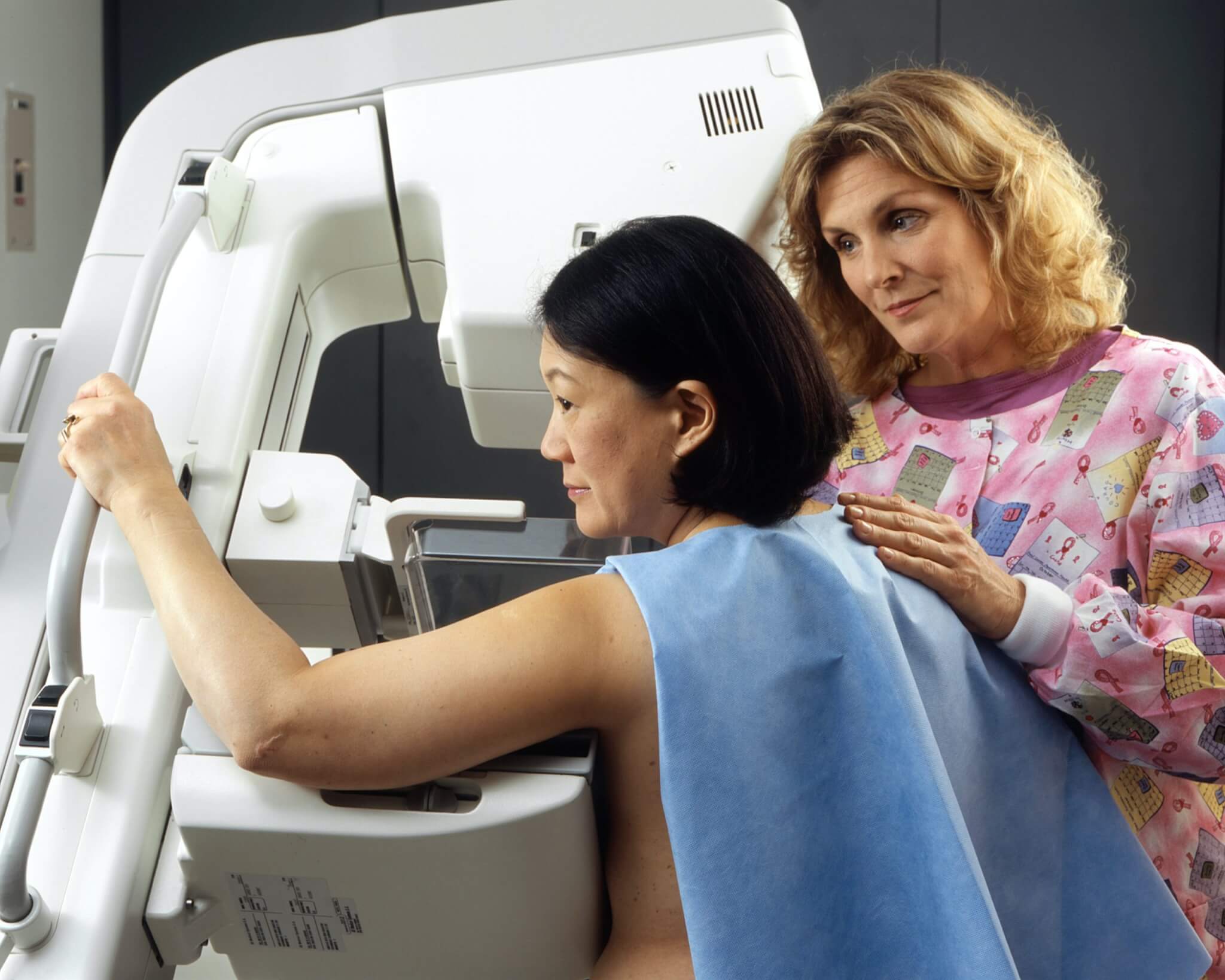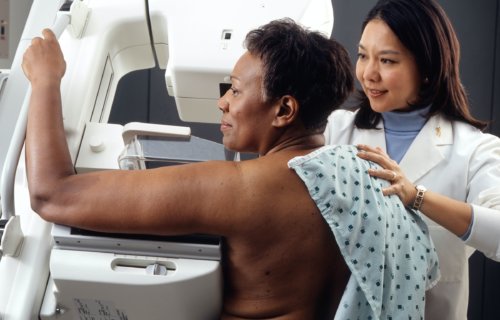There has been a radical change in the guidelines for breast cancer screening as recommended by the United States Preventive Services Task Force. The USPSTF now recommends that breast cancer screening begin at age 40, with mammograms every two years.
These updated recommendations apply to women at average risk for breast cancer. Women at increased risk (e.g., having a family history of the disease) and women 75 years and older should discuss screening intervals and methods with their healthcare providers.
The previous USPSTF guidelines, issued in 2009 and revised in 2016, recommended that screening begin at age 50 with annual mammograms after that. Women with dense breast tissue might also receive a recommendation to have a breast ultrasound or MRI in addition to mammograms.
So, why would the USPSTF change its recommendations now? There are two main reasons:
- Data from the National Cancer Institute shows that the number of cases of advanced breast cancer in women in their 40s has been increasing by two percent per year since 2016.
- Studies on breast cancer screening have shown that the greatest benefit was achieved when women started having mammograms every other year beginning at age 40.
The task force predicts that the new screening guidelines will increase the number of lives saved by 20 percent and that Black women will benefit to a greater degree than White women.

The new guidelines are controversial
There are health professionals who disagree with the new USPSTF recommendations. Dr. Elisa Port, the chief of breast surgery for the Mount Sinai Health System in New York City, says that mammograms every other year, even starting at age 40, will miss aggressive cancers that grow quickly.
According to Dr. Therese Bevers, medical director of the Cancer Prevention Center at the University of Texas M.D. Anderson Cancer Center, breast cancers that are more aggressive are seen in younger women.
Dr. Laura Dean, a breast-imaging radiologist at the Cleveland Clinic, says that aggressive, life-threatening cancers must be found as early as possible before the patient can palpate it.
Dr. Wanda Nicholson, chair of the USPSTF and professor of prevention and community health at George Washington University, says that screening every year increases potential harms. These harms include false-positive results, which could mean unnecessary biopsies and other tests.
Dr. Bevers, however, believes that women are reassured by and grateful for efforts to make sure no disease is present.
Comparing recommendations of different organizations
- The American Cancer Society guidelines advise that women ages 40 through 44 should have the option to start screening annually. Between the ages of 45 and 54, people should get screened every year. At age 55, women can choose to have mammograms every year or every other year and should continue if they are in good health and expected to live for another 10 years.
- The National Cancer Care Network recommends annual mammograms starting at age 40.
- The American College of Obstetricians and Gynecologists recommends that women receive the option to start mammograms at age 40 and should start no later than age 50. They should choose to have screening every year or every other year based on a thorough discussion with their doctor. Women should continue screening until at least age 75.
- The American College of Radiology and Society of Breast Imaging recommends annual screening starting at age 40 and a risk assessment by age 25, especially for higher-risk populations, including Black women and women of Ashkenazi Jewish heritage.
So, when should you start screening? Talk to your doctor about your risk for breast cancer and about starting screening at age 40. All women should start screening by age 50.
